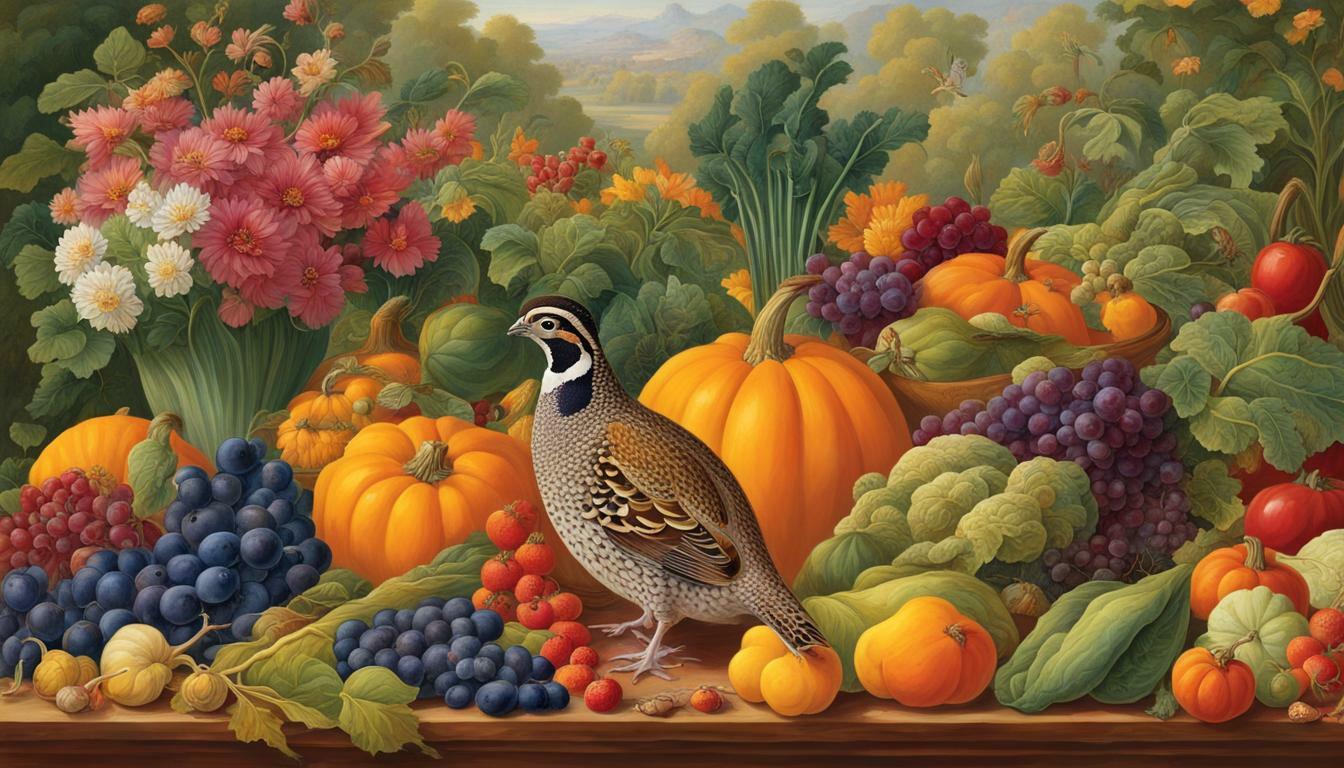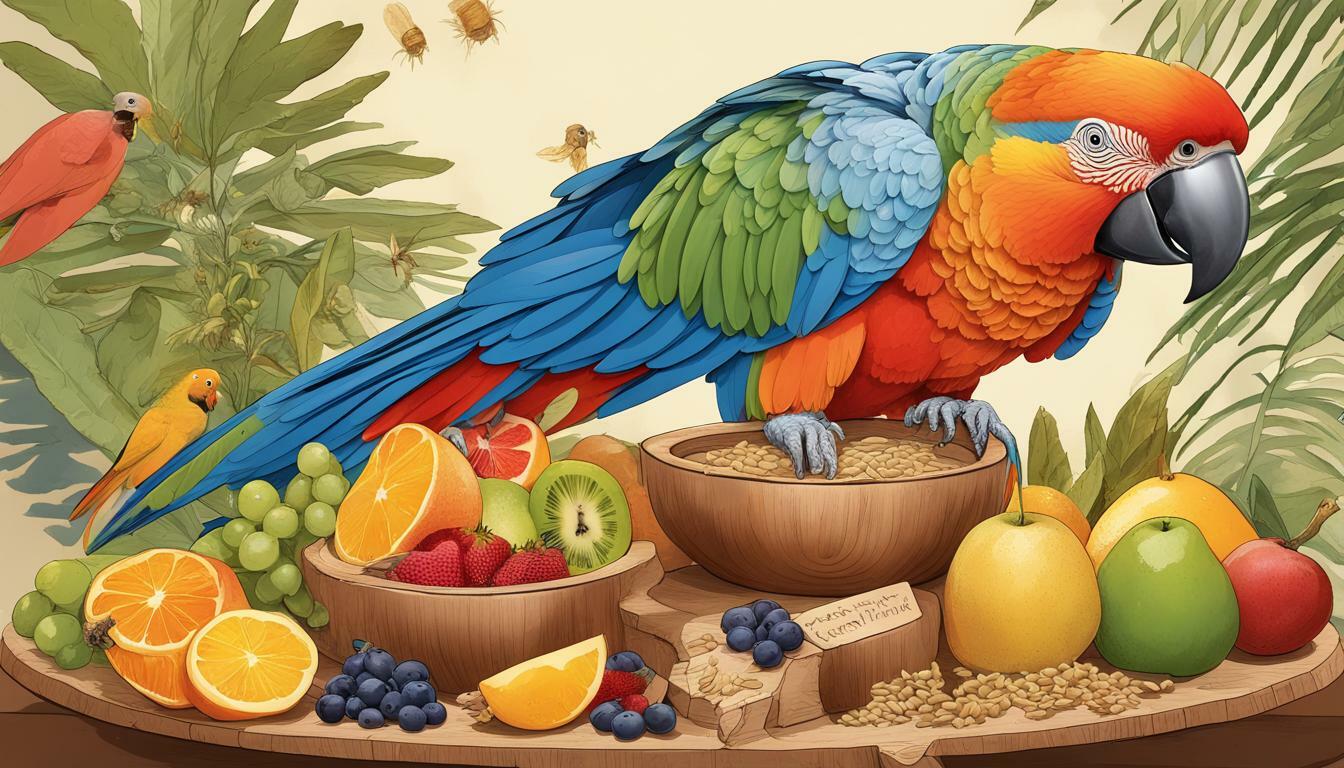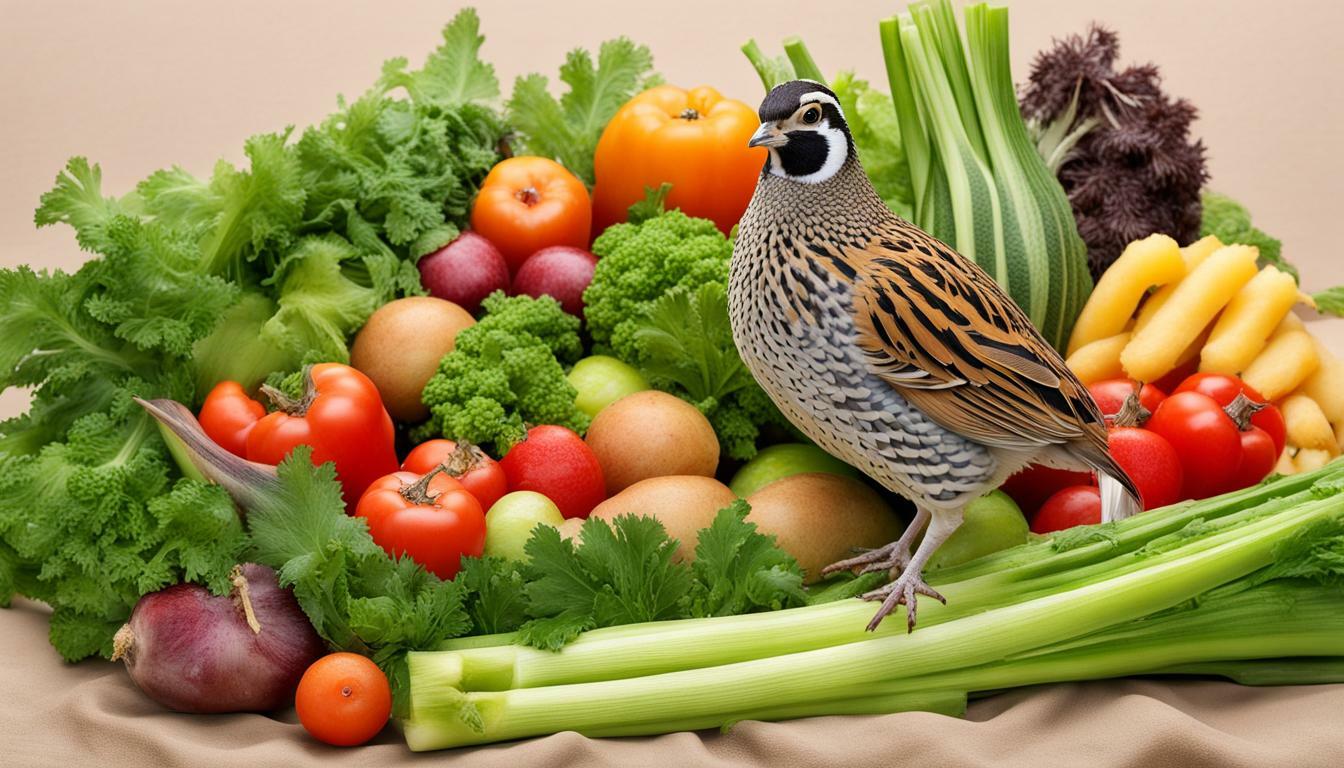Can Quail Eat Squash? Facts Explored

Table of content:
Quail are small game birds that can be raised on farms or kept as pets. An important part of caring for quail is making sure they receive proper nutrition from their diet. One common question from quail owners is can quail eat squash?
Types of Squash Quail Can Eat
There are many different varieties of squash that are safe and healthy for quail to eat. Some of the most common types of squash that can be fed to quail include:
- Butternut squash – This tan-skinned squash has orange flesh that is sweet and nutritious. It provides quail with nutrients like vitamin A, vitamin C, potassium and magnesium.
- Acorn squash – Acorn squash has a dark green skin and orange flesh. It contains antioxidants, fiber, vitamin C, potassium and manganese.
- Spaghetti squash – Spaghetti squash has a yellow skin and flesh that separates into spaghetti-like strands when cooked. It is low in calories and high in nutrients like niacin, folate and potassium.
- Delicata squash – Delicata squash has green skin with yellow stripes and sweet orange flesh. It is rich in vitamin A, vitamin C, magnesium and manganese.
- Hubbard squash – Hubbard squash has a bumpy blue-gray skin and orange flesh. It is packed with vitamins, minerals, fiber and antioxidants.
- Kabocha squash – Kabocha is a Japanese variety of winter squash with dark green skin and drier, sweeter flesh. It provides nutrients like vitamin C, vitamin A and potassium.
- Golden Nugget squash – This small, round squash has a tan rind and deep orange flesh that is tender and sweet when cooked. It is high in vitamins and minerals.
Nutritional Benefits of Squash for Quail
Feeding squash provides many nutritional benefits for quail:
- Vitamin A – Squash is high in carotenoids like beta-carotene which converts to vitamin A. Vitamin A is essential for quail vision and reproductive health.
- Vitamin C – Most varieties of squash provide a good amount of immune-boosting vitamin C.
- Potassium – Squash has high levels of potassium which supports muscle and nerve function in quail.
- Fiber – The flesh and seeds of squash provide dietary fiber that aids quail digestion.
- Magnesium – Squash contains magnesium that helps regulate blood pressure and build strong bones in quail.
- Manganese – Squash is a good source of manganese which assists bone formation and metabolism in quail.
In addition to vitamins and minerals, winter squash provides quail with antioxidants like beta-carotene, alpha-carotene, lutein and zeaxanthin.
How to Feed Squash to Quail
When introducing squash to your quail’s diet, here are some tips:
- Wash the squash thoroughly before preparation to remove dirt or bacteria.
- Cut the squash into small cubes no larger than 0.25 inches to make it easier for quail to eat.
- Cook the squash either by boiling, baking, sautéing or steaming until it is softened. Raw squash can be difficult for quail to digest.
- Mash or finely chop cooked squash to make it safer and easier for quail to swallow without choking. Do not give large slices or chunks.
- Mix a small amount of squash into their feed at first to see if they like the taste. Slowly increase the ratio of squash over 2-3 weeks.
- Feed squash 2-3 times per week as part of a varied diet. Too much squash can lead to loose droppings.
- Remove any uneaten squash within 1-2 hours to prevent spoilage.
- Store cooked squash in an airtight container in the refrigerator for 3-5 days.
Recommended Serving Size for Quail
When feeding squash, follow these serving size guidelines for quail:
- Baby quail under 6 weeks old – 1-2 small cubes per day, 2-3 times per week.
- Adult quail – 2-3 tablespoons of cooked, chopped squash per bird 2-3 times per week. Adjust as needed.
- Breeding hens – Can receive up to 1/4 cup several times a week.
- Larger coturnix or jumbo quail – Can be fed up to 1/3 to 1/2 cup several times per week.
Monitor your quail’s droppings when feeding squash. Runny or loose droppings may be a sign they are getting too much. Reduce the amount if necessary.
Health Risks of Feeding Squash to Quail
Squash is generally considered a safe food for quail but there are a few health risks to be aware of:
- Too much squash can potentially cause loose droppings, diarrhea or gastrointestinal upset due to the high water and fiber content.
- Raw squash is difficult to digest and may cause obstruction if swallowed in large pieces. Always cook squash before feeding.
- Avoid spoiled or moldy squash as it can cause illness. Only feed fresh, unspoiled squash.
- Squash leaves and vines can potentially contain small amounts of toxins called cucurbitacins. Do not allow quail to eat the vines.
- Overfeeding squash may lead to nutritional deficiencies long-term if paired with a limited diet. Feed squash in moderation as part of a varied diet.
With proper preparation and portion sizes, most types of winter and summer squash can be a nutritious addition to a well-balanced quail diet. Introduce new foods slowly and discontinue use if any negative effects are observed.
Quail Behavior with Squash
Quail has diverse tastes and preferences when it comes to fruits and vegetables. Some quail eagerly accept new foods like squash while others may ignore it or pick around it. Here are some quail behaviors you may notice:
- Most quail enjoy the sweet flavor of cooked squash. It may become a favorite treat.
- Some young quail may not immediately recognize squash as food. They may need several exposures before eating it.
- Breeding hens often readily eat squash to get more nutrients for egg production.
- Older or ill quail are more likely to reject new foods. Stick to their existing preferences.
- Some quail may eat around squash if mixed into their feed, selecting only grains they know.
- Quail have small beaks. They may avoid large chunks of squash. Mash or finely chop squash.
- Adding small amounts of squash to chick starter feed can help chicks adapt to the taste.
Monitor your quail’s interest level when introducing squash. Adjust the amount and preparation method as needed to encourage consumption.
Final Thoughts
In conclusion, most types of cooked squash are perfectly safe and healthy for quail to eat. Winter squash varieties like butternut, acorn and kabocha offer great nutritional value. Feed squash 2-3 times per week in moderation along with other fruits and vegetables for a balanced diet. Mash or chop squash into bite-sized pieces before serving. Monitor for loose droppings. With proper precautions, squash can be a beneficial supplement to feed pet, breeding, and farm-raised quail.
Welcome. I’m Adreena Shanum, the proud owner of this website, and I am incredibly passionate about animals, especially poultry. I founded adreenapets.com as a labor of love, stemming from my desire to share my knowledge and experiences with poultry enthusiasts worldwide.




